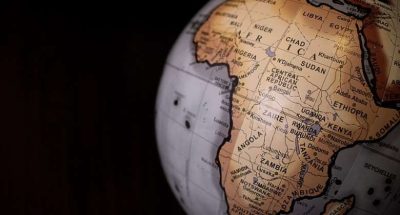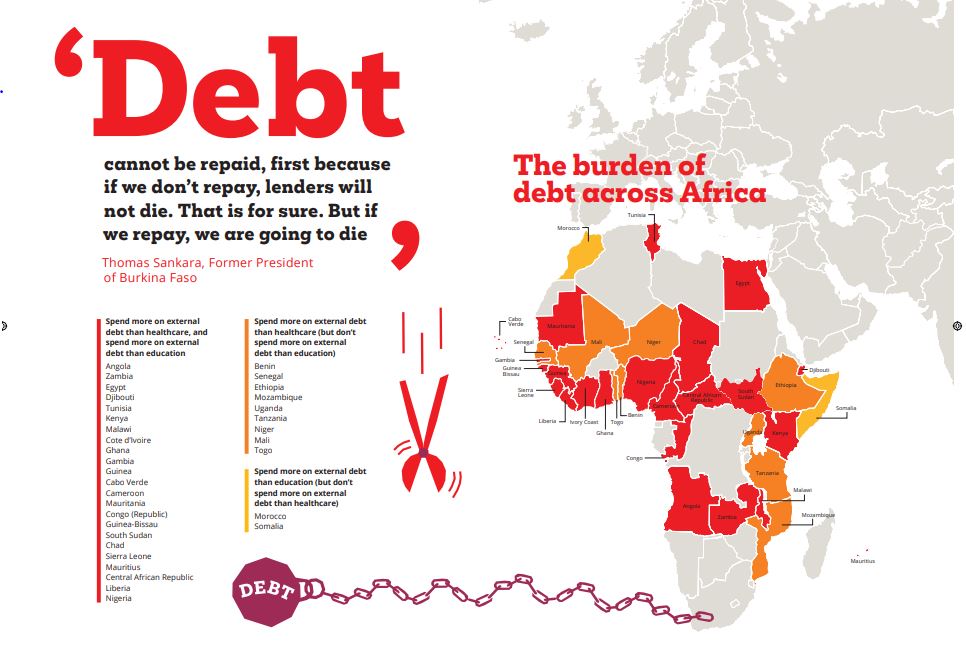Africa in Review 2024: Continental Development and the Imperatives of Unification
Part III: Financial debt obligations and the need for a reconfiguration of the world economy

Over the last several years there has been a reemergence of the African debt crisis which served as a major impediment to the qualitative growth and development of the continent since the 1950s and 1960s.
After spending four centuries under enslavement and another century or more of colonialism, the leaders of the independence movements of the post-World War II period were faced with monumental challenges.
The International Monetary Fund (IMF) and the World Bank, which have the United States government backing, these financial institutions are notorious for their imposition of conditionalities that place any African government under constraints regarding the priorities related to national and regional development. These institutions were formed in 1944 just months prior to the conclusion of the Second Imperialist War ostensibly to assist in the facilitation of the reconstruction of Western Europe. Nonetheless, during the 1960s and 1970s, the focus of the IMF-World Bank became centered on the political containment and economic draining of the Organization of African Unity (OAU) states, now known as the African Union (AU).
Since the early phase of the independent African states coming into fruition, the mounting crises spawned by global debt has been a major cause of concern and a precipitator of internal conflict and the intensification of the class struggle. Each new government which comes to power either through electoral politics or force of arms is doomed to encounter international finance capital as the principal arbiter of national and continental priorities.
With the inherent exploitative and oppressive mechanism of enslavement, colonialism and neo-colonialism, Africa and its people at home and abroad were automatically left in a disadvantageous situation when attempting to build an independent existence. Two important figures in the liberation struggles on the continent, President Fidel Castro of Cuba and Capt. Thomas Sankara of Burkina Faso, decades ago called for the cancellation of the international debt which is reinforcing the system of neo-colonialism across the globe.
The African Development Bank (AfDB) formed in the Republic of Sudan during 1964 was designed to foster the economic growth of the emerging states. As early as 1958, the leaders of Ghana, Guinea and Liberia met to discuss the need for a self-directed growth strategy for independent African states.
In a report issued by the AfDB in 2024, it says of the debt situation, that:
“When African Development Bank Group member states meet from 27 to 31 May in Nairobi, Kenya for the 2024 Annual Meetings, the question of African debt will be one of the key discussion points. The event’s theme is: ‘Africa’s Transformation, the African Development Bank Group and the Reform of the Global Financial Architecture’. The Bank Group estimates that Africa’s total external debt, which stood at $1.12 trillion in 2022, had risen to $1.152 trillion by end-2023. With global interest rates at their highest level for 40 years and as multiple bond debt securities issued by African countries reach maturity, there is no shortage of challenges in 2024. Africa will pay out $163 billion just to service debts in 2024, up sharply from $61 billion in 2010.
The growing burden of debt repayments has the potential to threaten achievement of the Sustainable Development Goals on the continent, particularly in health, education and infrastructure.”
.
.
Yet earlier in 2024 in Kenya, Nigeria and Ghana, governments felt compelled to deploy their security forces to repress mass demonstrations and strikes whose origins are to be found within the adoption of domestic policies dictated by the finance capital. Dozens were killed in Kenya and Nigeria as the popular resistance forces, youth and trade unions demanded a decent standard of living for the vast majority of people inside these countries.
Over taxation, hyperinflation, the lack of food and energy resources are fueling unrest across the AU member-states. In Kenya general strikes were sparked by a legislative attempt to enact exorbitant taxes which would disproportionately impact the working class and impoverished.
Later in Nigeria, the mantra was to end bad governance. This state has the largest population of any other nation in the AU, reported to be in excess of 227 million. Taking account of its vast petroleum resources and natural gas, with the correct methodology, the Federal Republic of Nigeria should be one of the most advanced countries internationally.
Nonetheless, the masses marched in Nigeria during 2024 carrying empty pots to signify the lack of food inside the country. The government of President Bola Tinubu responded with brutal force and legal prosecution. Eventually, the administration was forced to release a number of minors being charged with treason.
What is needed is the empowerment of the masses of workers, farmers and youth to shape the imperative policy decisions which would benefit the people. This can only be carried out through genuine unification efforts based on Pan-Africanism and socialist construction.
Africa, BRICS and the NDB: The Need for Alternative Development Strategies
The involvement of AU member-states within the Brazil, Russia, India, China, South Africa Plus (BRICS) formation represents an important advancement. South Africa, one of the anchor states for BRICS, has been instrumental in bringing in Ethiopia and Egypt, two major political and economic states integral to any effort to build sustainable development.
BRICS countries encompass 46% of the world’s population, some 3.25 billion people. The overall Gross Domestic Product (GDP) of the BRICS states represents 35% of the world economy in comparison to 30% for the Group of 7 (G7). See this.
Russian Ambassador to Ethiopia, Evgeny Terekhin, expressed the appreciation of Moscow which served as the BRICS Chair for 2024. BRICS, working alongside the New Development Bank (NDB), provides a framework for breaking with the imperialist-dominated world system.
Ambassador Terekhin was quoted in a statement published by BRICS in December 2024, saying:
“The New Development Bank (NDB), aligned with BRICS, aims for a more inclusive, resilient, and sustainable world, presenting member nations with equitable and accessible economic opportunities, Russian Ambassador to Ethiopia, Evgeny Terekhin said. Briefing journalists on the outcomes of the BRICS + 2024 Summit today, the Ambassador said that with its democratic decision-making structure, BRICS is notably more egalitarian than many established organizations. ‘The group’s members are seeking alternative sources of funding. Developing countries are convinced that the New Development Bank, which has issued billions of dollars in loans and allows them to be repaid in national currencies…,’ he emphasized. The countries of the Global South are in considerable need of financial resources at present and the conditions for securing such resources are rather challenging, Ambassador Terekhin added. Therefore, he stressed ‘it is crucial to provide funding in national currencies and in specialized formats. The New Development Bank (NDB) is dedicated to this endeavor, funding not only sovereign projects but also private initiatives.’”
Africa is most definitely in dire need of equitable sources of funding for genuine development projects. An alternative lending and financing mechanism could open avenues for independent economic initiatives.
Yet for this method to succeed there must be a break with the imperialist system to cast off the antiquated terms of finance and trade. The western industrialized capitalist states will not allow a delinking by the Global South, absent a protracted struggle for economic independence and sovereignty.
Implications of a Second Trump Term
What will be the impact of another term for United States President-elect Donald Trump? All we need to do is look at the previous term of office to recognize the degree of dysfunction and internal turmoil which awaits a projection towards the peoples of Africa and the developing geopolitical regions.
Therefore, it is important for the efforts of BRICS and its regional counterparts particularly the African Continental Free Trade Area (AfCFTA) to gain the broadest support internationally. With the debt obligations rising in the AU region, it would be quite advantageous for the continent to discharge its financial burdens to the banks.
Trump had already before taking office threatened various geopolitical regions of the world such as the seizure of Greenland, Canada, Mexico and Panama. He and his incoming administration called for massive tariffs against China and Mexico along with other states.
Tariffs, like sanctions, are acts of economic warfare. There is no way of negotiating a peaceful coexistence between imperialism and the majority of the world’s population.
The only viable solution for Africa during this period is total unification and socialist construction. Capitalism under Trump and other imperialist leaders envisions only a deepening of the global crises through permanent war and mass impoverishment.
*
Click the share button below to email/forward this article. Follow us on Instagram and X and subscribe to our Telegram Channel. Feel free to repost Global Research articles with proper attribution.
Abayomi Azikiwe is the editor of the Pan-African News Wire. He is a regular contributor to Global Research.
Global Research is a reader-funded media. We do not accept any funding from corporations or governments. Help us stay afloat. Click the image below to make a one-time or recurring donation.



